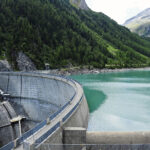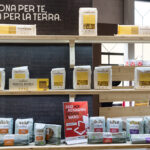

We really love our dogs, don’t we? We often find it difficult to resist the temptation to let them have tastier and more sophisticated culinary experiences compared to the usual dry food, but then we rightly hold back and have doubts: can they eat this food or could it be harmful for them?
These are good questions to ask ourselves and in general it’s a good idea to refrain from extending our diet to out four-legged friends. Because nutrition, along with physical exercise, has a huge impact on their immune system, which is precious to defend them against the attacks of germs, parasites, bacteria and cancer.
The first and most important concept to bear in mind is that protein of animal origin plays a key role in a dog’s diet, as they are carnivorous and forcedly became omnivore animals in the domestication process alongside human beings. We can draw an easy comparison: we’d never offer a plate of pasta to a cow as they are herbivore animals, so we should do the same with our dog, because they are carnivorous.
Plus, unlike human beings, dogs and their digestive tract do not tolerate a diet with too much variation: constant variations in the composition of their meal, just like on our table, might cause disorders and make them feel unwell. If we consider that we should gradually replace their usual food in the course of at least one week, clearly sharing our meals is not a sustainable option.

However, many believe that homemade food has the advantage of allowing you to choose the food of your dog with the same attention we choose ours. So in this case, as we do with the paediatrician when a baby is born, we need to design a healthy and well-balanced diet together with our vet, according to the specific features of our dog: breed, size and habits.
Indeed, there is no perfect recipe that can be used for everyone. There are only some general guidelines to be defined together with your vet: feed them mainly with protein (for instance beef, turkey, chicken, unscaled fish) integrated with carbohydrates, like rice or pasta (in both cases overcooked and possibly rinsed after cooking them to remove as much starch as possible) and the right amount of unprocessed fibre, oligo-elements and vitamins (given with vegetables or specific food supplements).
Avoid cold cuts, which are too rich in sodium and preservatives, lactose, which is generally not well tolerated in adult dogs, raw egg yolks, which contains avidin, an anti-nutrient that can lead to vitamin deficiencies, chocolate and matured cheese, especially in elderly or overweight dogs, grapes and raisins, which can cause kidney failure, garlic and onions, because they affect the health of red blood cells, any bones, however small, which might break and obstruct their intestine, cause injuries or even suffocate our best friend. Do not exaggerate with liver to prevent intoxication due to an excess in vitamin A.
In short there is little food remaining that is suitable for a dog at the bottom of our plates.








To comment, you must accept profiling cookies. Modify your cookie preferences